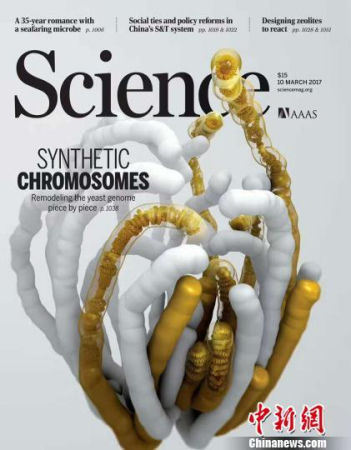

Chinese scientists have assembled four synthetic yeast chromosomes, making China the second country capable of designing and building eukaryotic genomes.
The findings were published in Friday's edition of journal Science, marking a step closer to building synthetic life.
In the study, researchers with Tianjin University, Tsinghua University and BGI-Shenzhen construct the synthetic active chromosomes through exactly matching the synthetic genome with the designed sequence for the first time.
In 2010, U.S. scientists succeeded in implanting a synthetic genome in a prokaryotic bacterium, marking the first step in chemical synthesis of live organisms.
The new effort is part of a larger project to redesign and reengineer yeast chromosomes, called the Synthetic Yeast Genome Project, which several research institutes participated in, including those in China and the United States.
Baker's yeast has long served as an important research model because their cells share many features with human cells, but are simpler and easier to study. (Xinhua)

86-10-68597521 (day)
86-10-68597289 (night)

86-10-68511095 (day)
86-10-68512458 (night)

cas_en@cas.cn

52 Sanlihe Rd., Xicheng District,
Beijing, China (100864)

